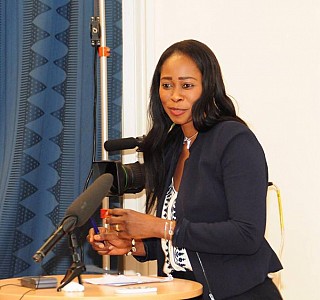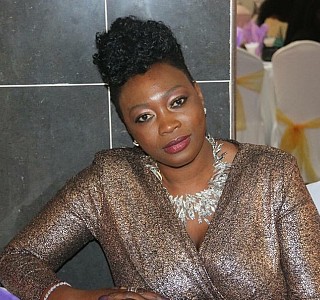Women Are Their Own Worst Enemy: Ten Ways To Prove This Saying Wrong
by Bisi Adeleye Fayemi
Last week I was a Guest Speaker at a workshop in Abuja on Women and Youth in Political Participation. During the discussions that followed, there was a consistent reference to the saying ‘Women are their own worst enemies’, echoed by both male and female participants. From my own experience, I can argue both sides of the case. I know that women are capable of doing unspeakable things to other women, I have no illusions about that.
However, like an incurable romantic, my position has always been that it is not women who are each other’s worst enemy, it is patriarchal oppression. At the workshop, women spoke about other women being their greatest allies in their political journeys while some spoke about being persecuted by other women. I think this is a debate that might never be resolved satisfactorily.
Women will not automatically like other women because they share the same sex. If however, we are indeed concerned about more unity and cohesion amongst women in the face of patriarchal oppression, there are a number of things women can do to stop people from repeating the awful refrain that ‘women are their own worst enemy’.
Stop using social media as a weapon to terrorize women: I know this is wishful thinking, but I can’t help but dream of a day when women will treat one another with respect in cyberspace. How does a mistress post messages threatening her lover’s wife on Instagram? How does a woman call Lupita Nyongo ‘’dirty’ because of her black skin? Why would a woman call another woman fleeing a violent relationship a ‘prostitute’?
Show solidarity with other women: You do not have to like every woman, or her choices. Yet you can show solidarity when it is required. When you hear that a woman you know is in distress or is in need, reach out to her. A visit, phone call, email or text, anyway in which you can show that she is in your thoughts, even women you might have a strained relationship with. There is a Yoruba saying that roughly translates as ‘My quarrel with you is not about wishing you death’. Even if she does not reciprocate when it is your turn, at least you have established that you are not her enemy, even if you are not friends. The further you go on your journey through life, the more effort you need to put into supporting other women along the way. When it comes to friends, never be that woman who declares, ‘I don’t have women as friends’. You do need women as friends. Value your friends and do not betray their faith in you.
Show empathy for women in public life: Life is not easy for most women when they are elected or appointed officials, or spouses of leaders. There is a backlash against women in public life that is always bubbling under the surface. Their mistakes are amplified and their frailties are exaggerated, compared with the way men are treated. Next time you are tempted to abuse or insult a woman in leadership, think again. If you were the Minister for Finance, would you appreciate being told to go back home and cook the finances in your husband’s kitchen? If you were a President’s wife, would you appreciate every item of clothing you put on being relentlessly scrutinised and costed by other women?
Treat female in-laws well: If you are married, you have to maintain a good relationship with all in-laws, both male and female. If you are a Mother-in-Law, treat your Daughter-in-Law well. Treat her as a daughter and not a stranger. If you are a Daughter-in-Law, treat her like your own mother. Same goes for the Sisters-in-Law. Even when you feel you have had it up to there, think about enlightened self-interest. What I mean by this is, as a mother, you don’t want your daughter terrorized by her Mother-in-Law. So think about this the next time you pick a fight with your son’s wife. As a Daughter-in-Law, think about how you might feel if, years from now, your son’s wife calls you a witch. So why call your Mother-in-Law one?
Don’t be a ‘Wicked Step Mother’: Wicked step mothers exist as fact and fiction. We are very familiar with stories of step-mothers who abuse, banish and even kill their step-children. It is the stuff many a Nollywood drama is made of, and culturally, it is a global phenomenon. Why don’t we ever hear about the good step-mothers? I know a step-mother who brought up her husband’s three children from his first wife alongside her own two, and there was no difference in the way they were treated. She earned their love and respect. I am sure there are many more like her, why do we only hear about the wicked ones?






